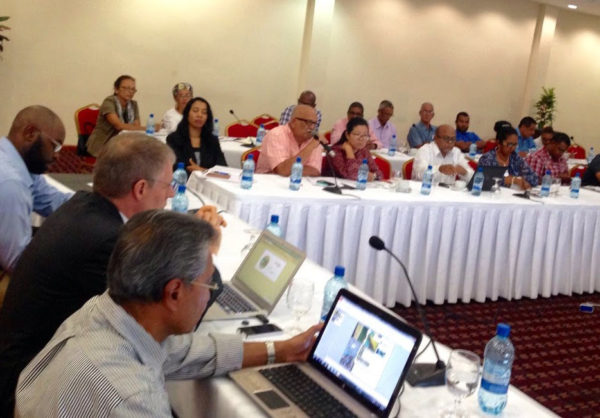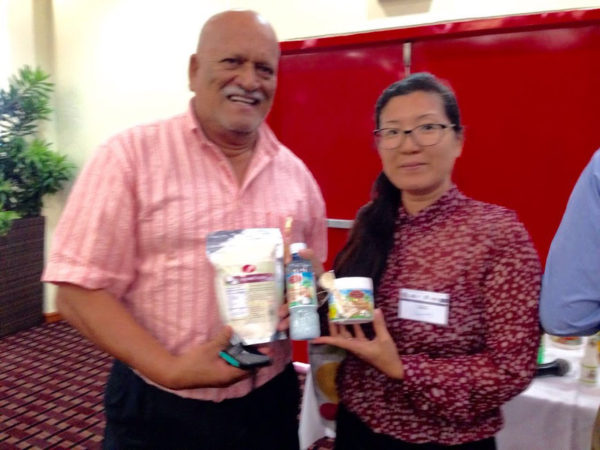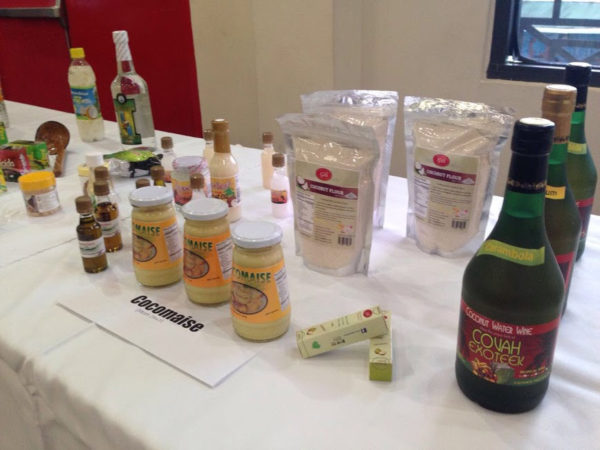Local coconut farmers and processors are looking for support from the government, including the setting-up of a development fund, to make the industry more viable.
Vilma Da Silva, a farmer and processor from the Pomeroon, told Stabroek News at a two-day conference on the development of the industry at the Ramada Georgetown Princess Hotel that farmers have been planting way below their capacity because of their financial constraints.
As a result, she called on government to establish a coconut development fund in order for small farmers to access loans with low interest rates. The fund, she said, would enable farmers to access low-interest loans with a longer time to repay as coconut is a long-term crop.
The conference, supported by the European Union (EU), is part of the Coconut Industry Development for the Caribbean Project, which is being overseen by the Geneva-based International Trade Centre (ITC) with its key partner, the Caribbean Agricultural Research and Development Institute (CARDI).
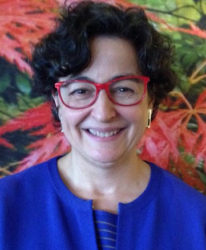
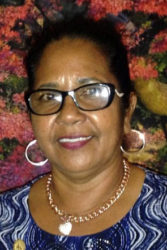
Da Silva said duty-free concessions should also be given to small farmers. She pointed out that she has to pay $800,000 VAT for the purchase of a generator. She was also concerned that VAT has been added to the bottled coconut water that she has invested in, resulting in some losses on returns.
According to Da Silva, the small farmers are concerned about a sustainable market and prices for their product. As a farmer, she added, she is also faced with challenges with marketing and prices. She said that along with other farmers, she had to accept prices that were given by middlemen.
As a result, she took up the mantle four years ago to add value to the products by clustering some of the farmers and asking for their support so she can help them to have a better life. She then started bottling the coconut water and has since begun exporting the product.
This was made possible through the support of different agencies, including a women’s organisation where she underwent additional training that was supported by the EU.
She was grateful to the EU for giving her the opportunity to represent the farmers.
Local processor Beni Sankar, who operates Guyana Ideal Life, which produces virgin coconut oil, said he has been having problems with the American and European markets because he is not yet certified. He is working to have certification which would enable him to get into the foreign market. Sankar also recently launched cold press coconut oil, lip balm and coconut flour products.
Booming market
Arancha González , Executive Director of the ITC, told reporters at a press conference that there is a booming market for value-added coconut products and there had been growth by 700% for some products since 2008.
She mentioned coconut water; coconut milk, which Starbucks in the UK has started serving on its menus; virgin coconut oil; coconut fibres used in industrial applications; and coconut in fashion and in food.
The virgin coconut oil was singled out as it is now considered a super food that is good for health and can be sold for a higher return, which matters for the producer.
González said there happens to be a lot of supply capacity in Guyana and the Caribbean, where the coconut industry holds a lot of opportunities to improve the livelihood of thousands of farmers.
“There is a very big continuum between market, trade, economic development, poverty reduction and farming,” she said, while noting that ITC is so focused on coconut because it wants to demonstrate that agriculture and agro-processing are good ways to develop the economy.
González said a dialogue has started with the government to look at “what market opportunity exists to sell value-added downstream products and what opportunity exists for more value-added [products] in Guyana.”
She, however, noted that it is recognised that although there is booming market for downstream products, there is a shortage of production locally. This is due to pests affecting the produce, while some of the plantations are old or have been affected by climate change. As a result, she said a big part of the focus in Guyana is to improve productivity of the plantation, in terms of yields and the quality to meet sanitary standards for certification.
Barton Clarke, Director of CARDI, expressed appreciation to the government and the National Agriculture Research Extension Institute for facilitating the conference.
He said they have realised the importance of bringing the private sector to the table.
George Jervis said some of the coconut land needs to be rehabilitated and that the Rupununi and the intermediate savannahs are the new frontiers where promising work is being done. According to him, 500 acres of brown sand blocks would be allocated for investment and government is in the process of realigning the land so farmers can have access to water.
